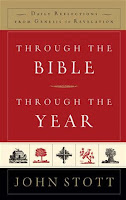There is a rhythm to scripture, a pattern of God's direction, human defection followed by divine correction. Many scholars have observed it, but none have clarified its importance to the whole of scripture as David Noel Freedman in his very important book The Nine Commandments.
The pattern is set in the very beginning of Genesis and it is this: God's Command, Human Disobedience and Divine Punishment. God's command comes in the form (usually) of a covenant that has stipulations, humans violate those stipulations and find themselves outside the covenant in some form of exile.
We see it clearly established with Adam and Eve:
- God commands them not to eat of the tree of knowledge of good and evil.
- They both disobey and eat (amidst lots of drama) from the forbidden tree.
- They are punished - indeed, exiled from the garden - for having disobeyed God's instruction.
- God tells him to gain mastery over his anger.
- Cain succumbs to his anger and kills Abel his brother.
- Cain is punished - exiled as a wanderer - for having disobeyed.
As we approach the end of this narrative sequence, we see it re-appear in story of the tower of Babel:
- After the flood, God renews the covenant with creation and tells the peoples to be "fruitful, multiply and fill the earth" being stewards of creation as God originally intended (8:17 and 9:1).
- Certain one's migrate and settle in Shinar "to build a city and tower....to make a name for ourselves" (11:4).
- God punishes them for disobeying his command and the hubris which caused them to build a great monument to themselves, by confusing their language and scattering them over the face of the earth - another form of exile (11:8).
This clear pattern of "command - disobedience - punishment" is the story of Israel writ large. However, the punishment is never merely punative. The pattern repeats itself because the point of the punishment is redemption - a second, third, fourth, etc chance.
The story of the Old Testament is encased in a literary envelope: Abraham is called out of Babylon and the children of Israel are ultimately exiled there, ending up where it all began, having shown themselves unwilling to keep God's commands, incapable of covenant fidelity.
What does God do with such a people? How does he rectify the problem of serial covenant infidelity? The prophets predict a new covenant and a new person/people who will renew yet again the old covenants.
But that is getting ahead of the story at this point. But don't miss this all important pattern.
This is yet another example of the Bible teaching us how to read the Bible.

What a wonderful window into the heart of God in the Old Testament. It's so easy to just see the punishment without remembering that His heart is always about redemption. Always.
ReplyDeleteYes, indeed. the Lord has a bias towards mercy.
ReplyDeleteTory+